
Welcome to Library Services at PPFI.Find out how you can get the most out of our resources.
As a PPFI student you can access all of our libraries.The libraries have open access and bookable study spaces with high speed wifi, photocopying and printing facilities.You can also borrow a laptop and get help from the library staff to develop your research or digital skills.
Contact us on our service today.
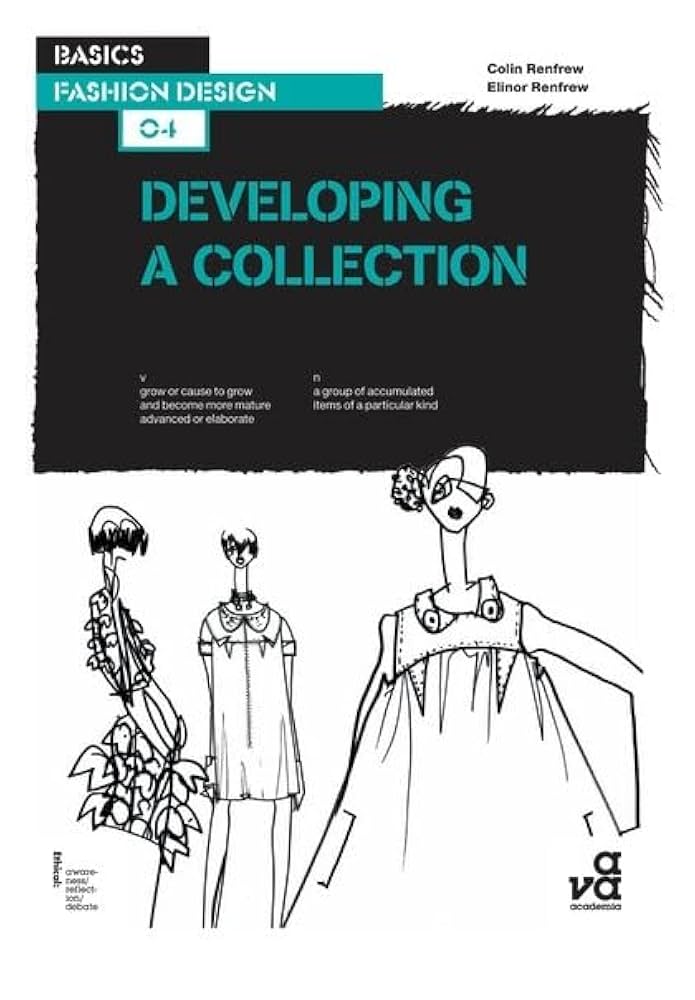
Elinor Renfrew, Colin Renfrew • 2009
Guides the reader through the process of developing a collection, from initial research through to final presentation and exhibition and sale
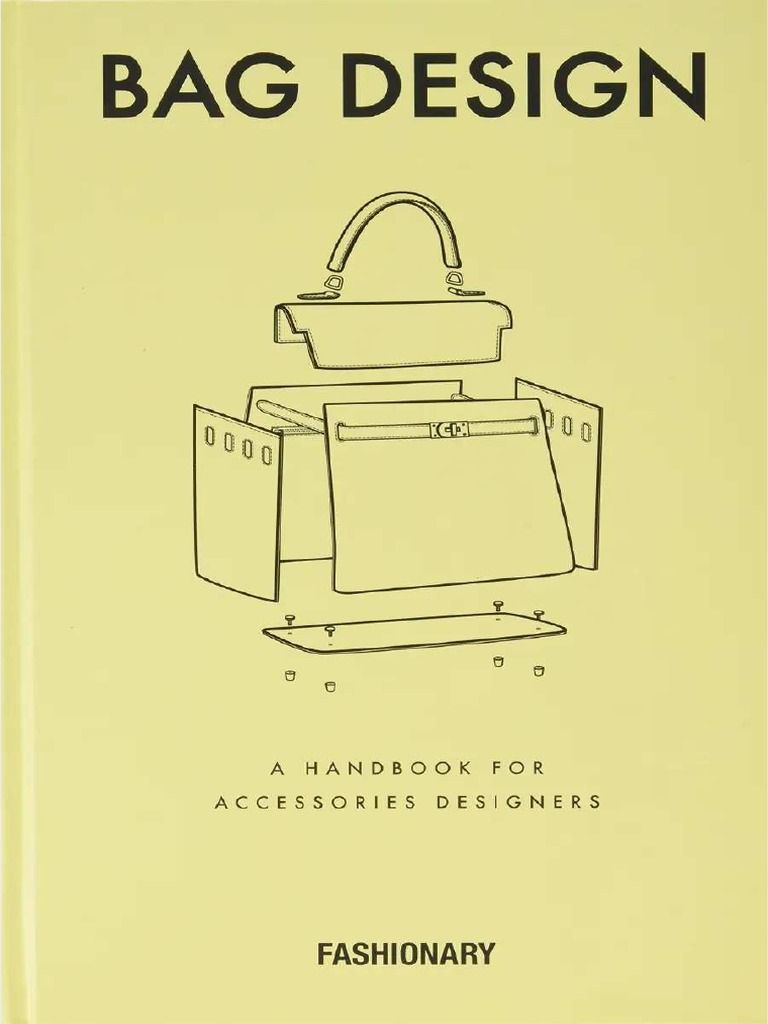
Fashionary • 2016
The Fashionary Bag Design is a complete handbook focusing on the practical needs of bag and accessories designers. It provides an insightful and inspirational foundation about bags and their key fundamentals to those in the fashion industry.
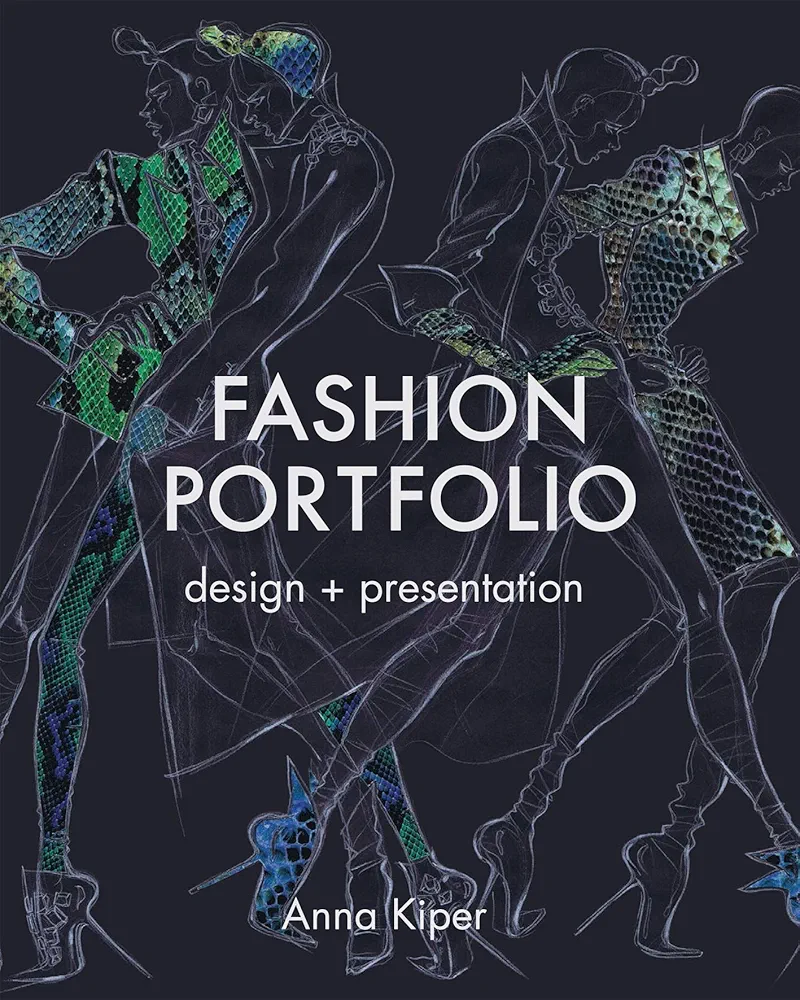
Anna Kiper • 2016
The book takes the reader through all the major steps of fashion portfolio creation. It features the main components of the design process from the identification of inspiration sources and fashion trends research to conceptualization of a complete fashion collection. The topics covered include mood/fabric boards development, creation of original and innovative textiles as well as fashion silhouettes and garment details development through extensive research, quick design sketching, fabric manipulation, and draping experimentation. Great original designs and illustrations by the author as well as design sketch samples by established designers are provided throughout. There are samples of sketchbooks from professional and emerging fashion artists. The book provides some insight from established fashion and accessories designers on the highlights and challenges of the creative process. It is a great professional reference for techniques in the portfolio development. A beautiful but practical book that provides useful techniques and helps the reader get inside the mind of the designer.
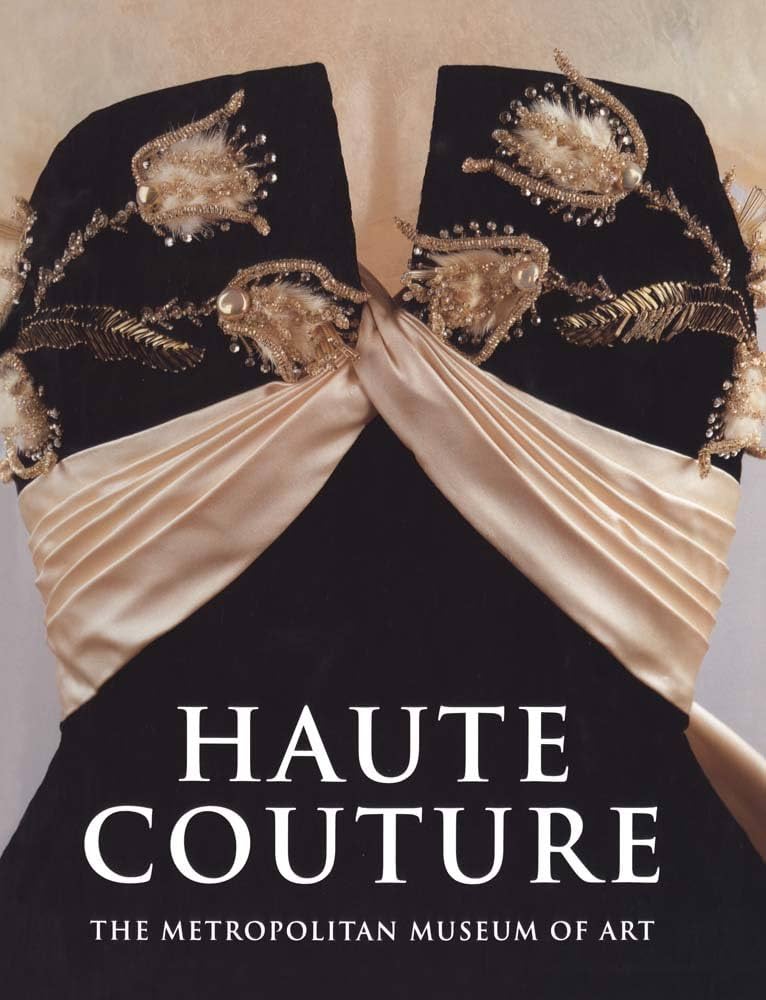
Richard Martin, Harold Koda • 1995
Published to accompany an exhibition at the Metropolitan Museum's Costume Institute, December 1995-March 1996. A lovely presentation of designs that exemplify the rise of haute couture--that is, fashion driven by the artistic expression of the designer rather than by the dictates of clients. The thoroughly captioned selections represent the history of haute couture from its beginings in mid-19th century Paris to the present-day creations of major designers. Tailoring and dressmaking techniques as well as the decoration produced by embroiderers, beaders, lace makers, feather workers, and other craftspeople are discussed in the explanatory text. No bibliography. Distributed by Abrams. Annotation copyright by Book News, Inc., Portland, OR
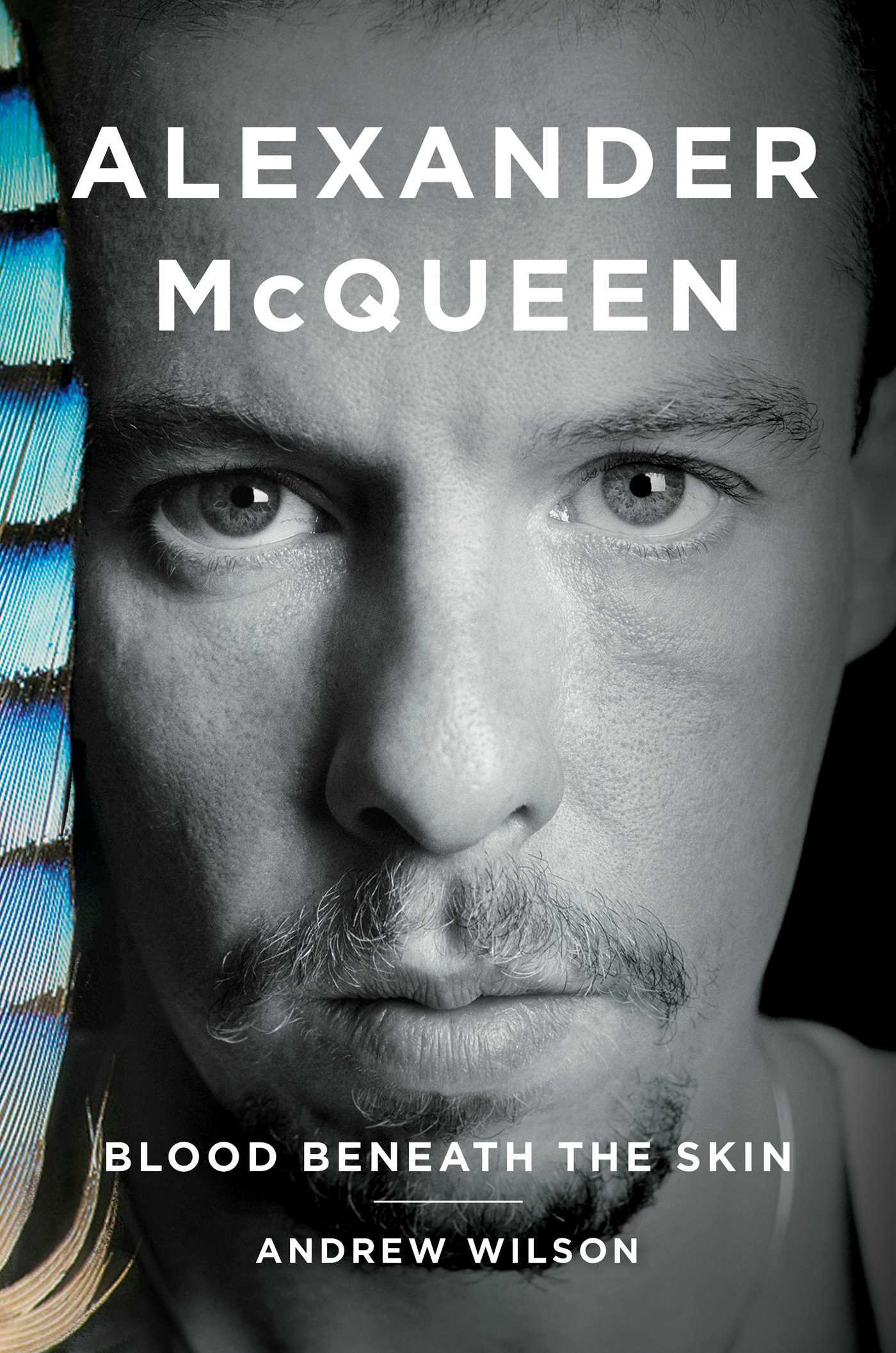
Andrew Wilson • 2015
The first definitive biography of the iconic, notoriously private British fashion designer Alexander McQueen explores the connections between his dark work and even darker life.When forty-year-old Alexander McQueen committed suicide in February 2010, a shocked world mourned the loss. McQueen had risen from humble beginnings as the son of an East London taxi driver to scale the heights of fame, fortune, and glamour. He designed clothes for the world’s most beautiful women and royalty, most famously the Duchess of Cambridge, who wore a McQueen dress on her wedding day. He created a multimillion-dollar luxury brand that became a favorite with celebrities including Kate Moss and Naomi Campbell. But behind the confident facade and bad-boy image, lay a sensitive soul who struggled to survive in the ruthless world of fashion. As the pressures of work intensified, McQueen became increasingly dependent on the drugs that contributed to his tragic end. Meanwhile, in his private life, his failure to find lasting love in a string of boyfriends only added to his despair. And then there were the dark secrets that haunted his sleep… A modern-day fairy tale infused with the darkness of a Greek tragedy, Alexander McQueen tells the complete sensational story, and includes never-before-seen photos. Those closest to the designer—his family, friends, and lovers—have spoken for the first time about the man they knew, a fragmented individual, a lost boy who battled to gain entry into a world that ultimately destroyed him. “There’s blood beneath every layer of skin,” McQueen once said. Andrew Wilson’s biography, filled with groundbreaking material, dispels myths, corrects inaccuracies, and offers new insights into McQueen’s private life and the source of his creative genius.
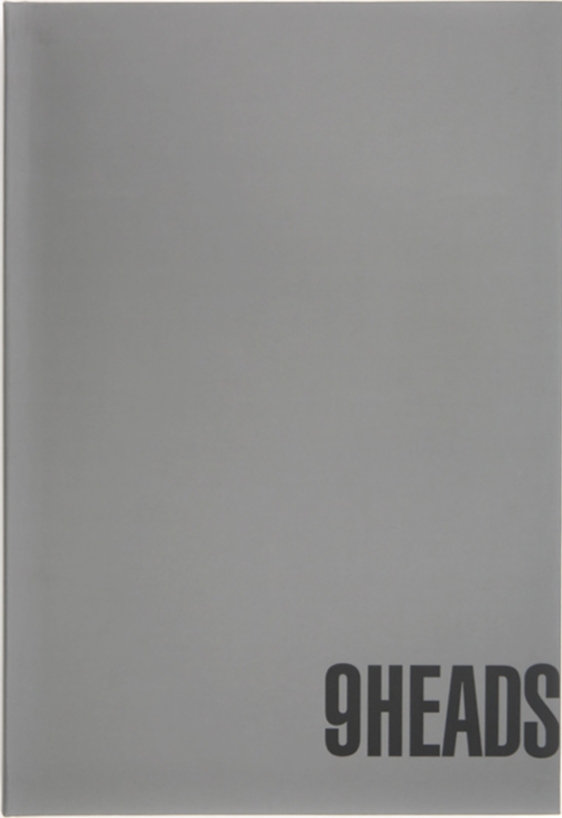
Nancy Riegelman • 2012
This book is a guide to drawing modern fashion for all levels of students; from beginners to advanced. It aims to teach how to draw fashion, to a level where virtually any type of garment can be drawn on the fashion figure. It also to serve as a reference work for specific information on all types of fashion garments and details that can be drawn on and incorporated into new designs.

Rossella Vodret Adamo • 2012
Dramatic shifts from foreboding dark to probing light, with minimal gradation in between; a realism that exposes all the flaws and folds of human flesh, eschewing Michelangelo's idealized bodies; a surgical explication of almost unbearably tense emotion; and the poised depiction of crucial moments at the lip of their unfolding: these were among the innovations of Michelangelo Merisi, known as Caravaggio. Without them, as the great Italian art writer Roberto Longhi once noted, Ribera, Vermeer, La Tour and Rembrandt could never have existed... and the art of Delacroix, Courbet and Manet would have been utterly different. It was Longhi who rescued Caravaggio's painting for the twentieth century, prior to which it had lain dormant since the painter's mysterious death in 1610. During Caravaggio's lifetime, however, his work was enormously influential and controversial. Each of his innovations in some way upset the prevailing tendencies of the day-not least when his insistence on physical realism led him to paint Saint Matthew as a bald peasant with dirty legs (attended upon by an irreverently intimate boy angel). Nonetheless, Caravaggio was never short of commissions or patrons, and left to posterity around 80 masterpieces. Now available in paperback, this monograph is published on the fourth centenary of Caravaggio's death, and documents his complete paintings in high-quality reproductions. Authored by renowned scholar Rossella Vodret, it is the must-have monograph on the artist.

Clare Monagle, Carolyn James, David Garrioch, Barbara Caine • 2023
This book reveals the importance of personal letters in the history of European women between the year 1000 and the advent of the telephone. It explores the changing ways that women used correspondence for self-expression and political mobilization over this period, enabling them to navigate the myriad gendered restrictions that limited women's engagement in the world. Whether written from the medieval cloister, or the renaissance court, or the artisan's workshop, or the drawing room, letters crossed geographical and social distance and were mobile in ways that women themselves could not always be. Women wrote to govern, to argue, to plead, and to demand. They also wrote to express love and intimacy, and in so doing, to explain and to understand themselves. This book argues that the personal letter was a crucial place for European women's self-fashioning, and that exploring the history of their letters offers a profound insight into their subjectivity and agency over time.

Susan Broomhall • 2018
Women and Power at the French Court, 1483--1563 explores the ways in which a range of women as consorts, regents, mistresses, factional power players, attendants at court, or as objects of courtly patronage wielded power in order to advance individual, familial, and factional agendas at the early sixteenth-century French court. Spring-boarding from the burgeoning scholarship of gender, the political, and power in early modern Europe, the collection provides a perspective from the French court, from the reigns of Charles VIII to Henri II, a time when the French court was a renowned center of culture and at which women played important roles. Crossdisciplinary in its perspectives, these essays by historians, art and literary scholars investigate the dynamic operations of gendered power in political acts, recognized status as queens and regents, ritualized behaviors such as gift-giving, educational coteries, and through social networking, literary and artistic patronage, female authorship, and epistolary strategies.
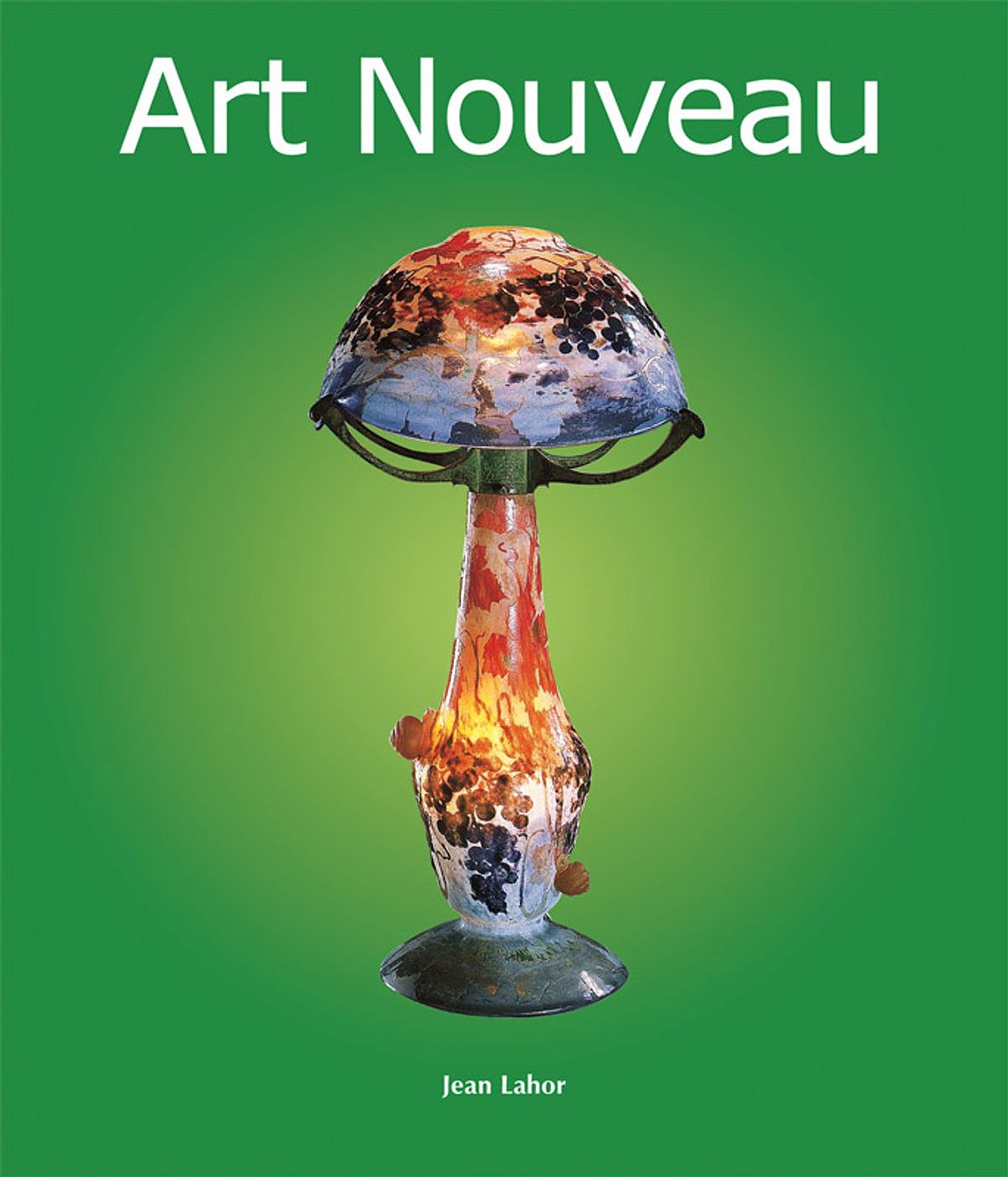
Jean Lahor • 2012
Art Nouveau gives a name to the decorative and architectural style developed in the 1880s and 1890s in the West. Born in reaction to the Industrial Revolution and to the creative vacuum it left behind, Art Nouveau was at the heart of a “renaissance†in the decorative arts. The primary objective of the movement was the creation of a new aesthetic of nature through a return to the study of natural subjects. In order to achieve this, artists such as Gustav Klimt, Koloman Moser, Antoni GaudÃ, Jan Toorop, and William Morris favoured innovation in technique and novelty of forms. After its triumph at the Paris Universal Exposition in 1900, the trend continued and has inspired many artists ever since. Art Deco, the successor of Art Nouveau, appeared after World War II.

Elinor Renfrew, Colin Renfrew • 2009
Guides the reader through the process of developing a collection, from initial research through to final presentation and exhibition and sale
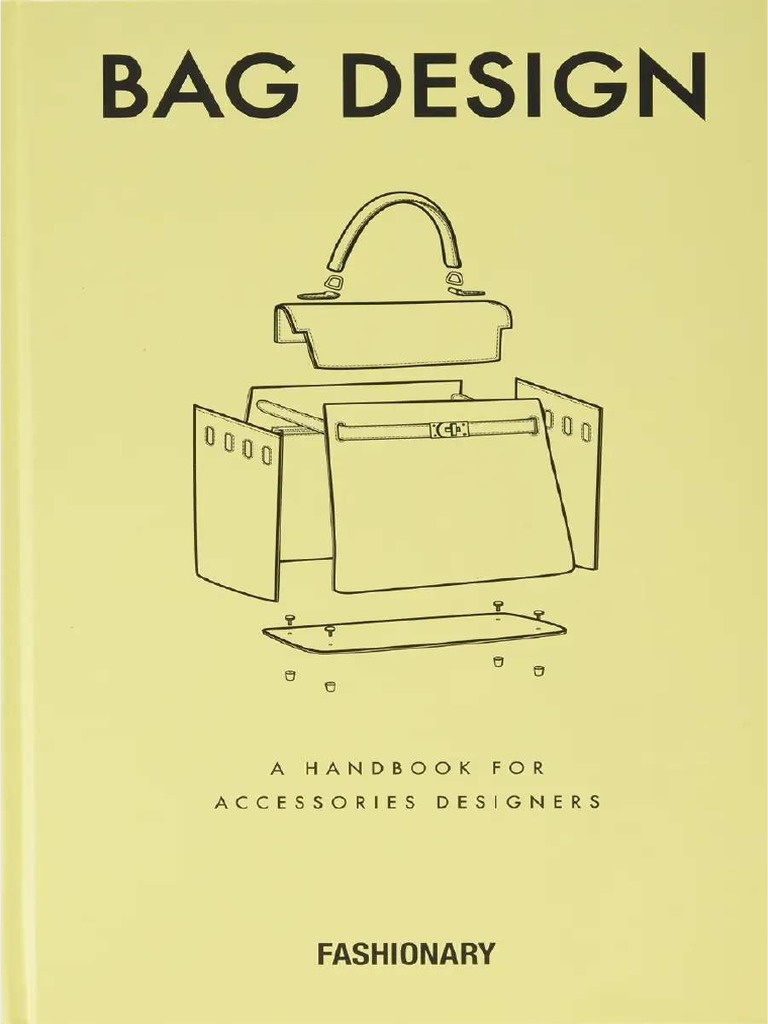
Fashionary • 2016
The Fashionary Bag Design is a complete handbook focusing on the practical needs of bag and accessories designers. It provides an insightful and inspirational foundation about bags and their key fundamentals to those in the fashion industry.

Nik Mahon • 2010
Basics Advertising: Art Direction is a comprehensive look at the role of the art director. It examines the key techniques, approaches and ‘secrets’ involved in the development of creative advertising concepts. The book emphasizes the importance of seeing things differently, and providing the audience with something to discover. It provides tips on how to use surprise, simplicity, provocation and visual drama to communicate the advertising message. It examines the process of visualizing and exploring different ideas, and discusses the use of moving image, photography, illustration and typography to realize these ideas. It also explores the use of different advertising media, from traditional formats to new and alternative channels of communication.

Adam Harrell • 2017
Creative Direction in a Digital World provides designers the tools they need to craft compelling digital experiences across screens, devices and platforms. Readers will learn how to take a multi-disciplinary, human-centered approach to digital creative direction that will help them uncover target audience insights, concept more creative campaigns, change consumer behavior, and create more user friendly digital experiences. Divided into ten chapters. Each focuses on a different key aspect of the creative director's job from start to finish. Learn how to understand the client's biggest challenges and distill insights about the audience into creative strategies. Develop the skills needed to communicate your ideas to a skeptical client. Learn how to more effectively manage your creative team. And most importantly craft digital experiences that get results.

Anna Kiper • 2016
The book takes the reader through all the major steps of fashion portfolio creation. It features the main components of the design process from the identification of inspiration sources and fashion trends research to conceptualization of a complete fashion collection. The topics covered include mood/fabric boards development, creation of original and innovative textiles as well as fashion silhouettes and garment details development through extensive research, quick design sketching, fabric manipulation, and draping experimentation. Great original designs and illustrations by the author as well as design sketch samples by established designers are provided throughout. There are samples of sketchbooks from professional and emerging fashion artists. The book provides some insight from established fashion and accessories designers on the highlights and challenges of the creative process. It is a great professional reference for techniques in the portfolio development. A beautiful but practical book that provides useful techniques and helps the reader get inside the mind of the designer.

Richard Martin, Harold Koda • 1995
Published to accompany an exhibition at the Metropolitan Museum's Costume Institute, December 1995-March 1996. A lovely presentation of designs that exemplify the rise of haute couture--that is, fashion driven by the artistic expression of the designer rather than by the dictates of clients. The thoroughly captioned selections represent the history of haute couture from its beginings in mid-19th century Paris to the present-day creations of major designers. Tailoring and dressmaking techniques as well as the decoration produced by embroiderers, beaders, lace makers, feather workers, and other craftspeople are discussed in the explanatory text. No bibliography. Distributed by Abrams. Annotation copyright by Book News, Inc., Portland, OR

Andrew Wilson • 2015
The first definitive biography of the iconic, notoriously private British fashion designer Alexander McQueen explores the connections between his dark work and even darker life.When forty-year-old Alexander McQueen committed suicide in February 2010, a shocked world mourned the loss. McQueen had risen from humble beginnings as the son of an East London taxi driver to scale the heights of fame, fortune, and glamour. He designed clothes for the world’s most beautiful women and royalty, most famously the Duchess of Cambridge, who wore a McQueen dress on her wedding day. He created a multimillion-dollar luxury brand that became a favorite with celebrities including Kate Moss and Naomi Campbell. But behind the confident facade and bad-boy image, lay a sensitive soul who struggled to survive in the ruthless world of fashion. As the pressures of work intensified, McQueen became increasingly dependent on the drugs that contributed to his tragic end. Meanwhile, in his private life, his failure to find lasting love in a string of boyfriends only added to his despair. And then there were the dark secrets that haunted his sleep… A modern-day fairy tale infused with the darkness of a Greek tragedy, Alexander McQueen tells the complete sensational story, and includes never-before-seen photos. Those closest to the designer—his family, friends, and lovers—have spoken for the first time about the man they knew, a fragmented individual, a lost boy who battled to gain entry into a world that ultimately destroyed him. “There’s blood beneath every layer of skin,” McQueen once said. Andrew Wilson’s biography, filled with groundbreaking material, dispels myths, corrects inaccuracies, and offers new insights into McQueen’s private life and the source of his creative genius.
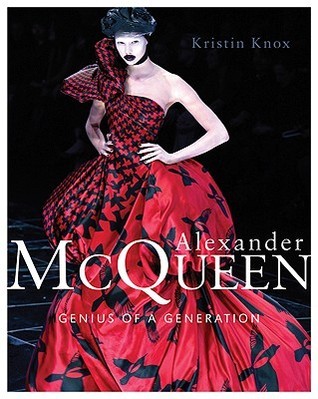
Kristin Knox • 2010
Book annotation not available for this title.Title: Alexander McqueenAuthor: Knox, KristinPublisher: Bloomsbury USA AcademicPublication Date: 2010/07/01Number of Pages: 128Binding Type: PAPERBACKLibrary of Congress:

Charlotte Sinclair • 2015
In 1947, Christian Dior stunned the fashion world with his first collection, the “New Look,†which transformed the way women dressed, and he continued to send shock waves with his later shows, significantly altering the fashion landscape. Vogue on Christian Dior tells the story of Dior’s searchfor the perfect line and how his unique style and vision of women’s ideal silhouette developed. One of the most famous designers of the 20th century, his name still fronts one of the most successful haute couture fashion houses. Vogue on Christian Dior is a volume from the series created by the editors of British Vogue. It features 20,000 words of original biography and history and is studded with 80 color and black-and-white images from their unique archive of photos taken by the leading photographers of the day, including Cecil Beaton, Horst P. Horst, Irving Penn, and Richard Avedon.

Megan Hess • 2021
Coco Chanel: The Illustrated World of a Fashion Icon is an illustrated biography of Coco’s Chanel's life from the internationally reknown illustrator and author, Megan Hess. It features key moments from Coco's amazing life and iconic items from the fashion empire that she built. Think an illustrated picture book for adults, told through Megan's stylish and feminine illustrations with a fun, whimsical and magical bent. Coco Chanel takes us on a romp through the three distinct chapters of Coco's life: from Coco’s early life and building the brand, to the empire she created, to the legacy she left behind, and how her style is still influential and iconic today. Hess’s book literally paints a picture of the woman who forever changed the way women dress.—The Australian Coco Chanel: The Illustrated World of a Fashion Icon is a beautifully presented biography of the designer—Books + Publishing National Style lovers, unite! This amazing guided tour of Chanel’s game-changing empire is made for coffee tables—Cleo Australian illustrator Megan Hess, whose work graces prestigious designers and brands including Chanel, Carrier and Tiffany and Co., creates a whimsical adventure through the world of Mademoiselle Chanel—PRIMOLife

Judith Watt • 2012
Judith Watt, a leading fashion historian and close personal friend of her brilliant, tragic subject, offers a close-up backstage look at the life, legacy, and visionary genius of Alexander McQueen. From his East London childhood to his explosive, game-changing fashion career to his shocking suicide at the age of forty, Watt’s Alexander McQueen features revealing commentary and intimate perspectives by those who were closest to the fearless, groundbreaking designer—including milliner Philip Treacy, stylist Katy England, photographer Nick Knight, as well as friends and collectors Sarah Jessica Parker, Lady Gaga, and Daphne Guiness—and stunning, photographs, many never before seen, of some of his most remarkable designs and intricate apparel.

Hamish Bowles • 2011
This unprecedented volume accompanies the first exhibition to consider the impact of Spain’s culture, history, and art on one of its greatest designers of the twentieth century, the legendary Balenciaga. Hailed as "Fashion’s Picasso" by Cecil Beaton, Cristóbal Balenciaga (1895–1972) created an innovative oeuvre that transformed the way women dressed. From the opening of his Paris fashion house in 1937 until his retirement in 1968, Balenciaga’s visionary, ever-evolving designs and impeccable standards seduced generations of the most iconic, best-dressed women in the world, including the Duchess of Windsor, Gloria Guinness, Pauline de Rothschild, Mona Bismarck, Princess Grace of Monaco, Doris Duke, Diana Vreeland, and Queen Fabiola of Belgium. For Diana Vreeland, the designer’s "inspiration came from the bullrings, the flamenco dancers, the loose blouses the fishermen wear, the cool of the cloisters." Exploring the profound and enduring influence of Balenciaga’s native country on his work, this book considers the influences of Spain’s greatest artists, from Zurbarán, Velázquez, and Goya to Picasso and Miró. It also investigates the impact of Spain’s religious dress and ceremony, its royal history, its rich regional costume, its dance traditions, and the power and splendor of the bullfight on the protean Balenciaga’s designs. This illuminating and lavishly illustrated volume will be a must-have for art and fashion connoisseurs.

Brenda Polan, Roger Tredre • 2001
From Charles Frederick Worth to Nicolas Ghesquière, designers have propelled fashion from an elite craft into a cornerstone of contemporary popular culture. This brilliantly written analysis of the achievements of the 50 greatest names in international fashion explores their lives, both personal and professional, drawing on the latest academic research and on the best of fashion journalism, including the authors' own interviews with designers spanning a 30-year period.The designers' working methods and career highlights are outlined in detailed and wittily written entries that capture the spirit of their times. From Poiret and Patou to Gernreich and Galliano, the sometimes provocative selection of 50 names poses stimulating questions about the definition of a fashion designer in the modern era. A ground-breaking book, this is a definitive introduction to fashion designers that is essential reading for both students and general readers alike.

Somer Flaherty Tejwani • 2015
The Art of Fashion Illustration is the ultimate guide to fashion sketching. Inside, you'll find more than 150 beautiful illustrations from the international community's masters of illustration and rising stars including Adriana Krawcwicz, Sarah Beetson, Pippa McManus, Sarah Hankinson, Nuno Da Costa, Lovisa Burfitt, and Erin Petson. Peek behind the cloth and enjoy interviews with the illustrators, commentary from influencers in the industry and a discussion of illustration techniques. Expert stylist and fashion writer, Somer Flaherty Tejwani, provides your with an inside scoop on over 30 illustrators.Along with interviews with the illustrators and fashion influencers, you'll find additional fashion illustration techniques - how artists infuse movement and attitude in their drawings, watercolor versus pencil, insider information, fashion silhouettes and more. Create your own illustrations by using convenient tear sheets that are included in the back of the book.Fashionistas and aspiring designers will love the inspirations found in this book! You'll be creating stylish and contemporary looks in no time!

unknown author •

Chidy Wayne • 2009
This comprehensive reference provides hands-on techniques for men's fashion in fashion illustration. Each chapter begins with an introduction which is followed by images with detailed explanatory captions.

John Hopkins • 2009
To become a successful fashion designer, you will need to develop your drawing skills, but for any career in fashion it is important to have an understanding of the basic principles of good fashion drawing. Basics Fashion Design 05: Fashion Drawing presents a fresh perspective on the basic principles and practices of contemporary drawing styles, applied to a fashion context. The book takes a practical approach in discussing the process of fashion drawing, offering advice on the selection of materials and media and advising on their different uses and applications. It also considers the theory and history of fashion drawing, and the range of styles used by contemporary designers; from quick sketches to sophisticated digital pieces. This discussion is accompanied by interviews with designers and illustrators, a glossary, resources directory and templates.

Nancy Riegelman • 2012
This book is a guide to drawing modern fashion for all levels of students; from beginners to advanced. It aims to teach how to draw fashion, to a level where virtually any type of garment can be drawn on the fashion figure. It also to serve as a reference work for specific information on all types of fashion garments and details that can be drawn on and incorporated into new designs.

Chidy Wayne • 2009
First-hand experience and passion for fashion illustration were the driving forces behind the creation of Essential Fashion Illustration: Men. The first half of the book focuses on technical drawings of the human body. The second half then branches out to fashion illustration using media such as watercolor, pastels, acrylics, and pencils. Essential Fashion Illustration: Men is both a didactic tool and a base from which fashion illustrators can build their own unique styles.

Francesco Lo Iacono • 2001
Learn to paint outstanding fashion watercolors with expert guidance from a leading fashion illustrator. Watercolor is a wonderful medium for figure and fashion as it creates loose, impressionistic results that capture the essence of a look without getting too bogged down in the details. In this complete course, professional fashion illustrator Francesco Lo Iacono shows you how to master creating delicate, beautiful fashion illustrations. The book begins with the best tools and materials, from paints and brushes to pencils, paper and more. You'll then explore simple watercolor techniques such as washes, wet-on-wet, wet-on-dry, and using the white of the paper. Francesco then goes on to teach you about lighting and shading, which can have a dramatic effect on your work. And finally in the front section, you'll learn about colour, how to create palettes, how to mix colours and achieving a range of skin tones. Once you've covered these fundamentals, Francesco explores the key elements of illustrating fashion, with guidance on how to approach both male and female faces, a wide variety of hair types and styles, different male and female poses, and how to draw and paint garments, reflecting tailoring, drapery, volume, texture and patterns. Twenty step-by-step projects then take these building blocks and show you how to use them to create beautiful fashion watercolors, starting with easier subjects and building in complexity as your confidence grows. You'll begin by painting handbags and shoes without models before starting to introduce figures. The range of subjects included covers all angles, from full figures front on and in profile to close-up make-up and beauty illustrations. You'll also learn how to create dynamic compositions for editorial fashion illustration. Finally, Francesco covers the best ways to digitize and retouch your work, how to incorporate other media alongside your watercolors, how to work live at fashion events and how to take everything you've learned to develop your own personal style of fashion illustration. Francesco's clients include fashion brands Dior, Gucci, and Louis Vuitton - and with this book you'll have all the tools you need to become an A-list fashion illustrator too.

Eundeok Kim, Ann Marie Fiore, Hyejeong Kim • 2013
This text is designed to introduce undergraduate students to the central concepts of fashion trend analysis and forecasting. Exploring the roles of both consumers and industry personnel as product developers, gatekeepers, and promoters of fashion trends, the book demonstrates how and why forecasting is vital to successful product and brand development. Fashion Trends: Analysis and Forecasting covers a wide range of key topics such as the impact of fashion consumption on the environment, economic development, and socio-cultural change as well as the impact of social responsibility and the digital consumer on current fashion trends. Designed to aid teaching and learning, each chapter includes key words, summaries, engaging case studies, discussion questions, and suggested class activities. Using this book as a guide, students will develop an understanding of the process, methods and influence of trend analysis and forecasting for the fashion business and will be encouraged to think through the core issues creatively. An essential text for students of fashion and design.

Regina Lee Blaszczyk, Ben Wubs • 2018
The fashion business has been collecting and analyzing information about colors, fabrics, silhouettes, and styles since the 18th century - activities that have long been shrouded in mystery. The Fashion Forecasters is the first book to reveal the hidden history of color and trend forecasting and to explore its relevance to the fashion business of the past two centuries. It sheds light on trend forecasting in the industrial era, the profession's maturation during the modernist moment of the 20th century, and its continued importance in today's digital fast-fashion culture. Based on in-depth archival research and oral history interviews, The Fashion Forecasters examines the entrepreneurs, service companies, and consultants that have worked behind the scenes to connect designers and retailers to emerging fashion trends in Europe, North America, and Asia. Here you will read about the trend studios, color experts, and international trade fairs that formalized the prediction process in the modern era, and hear the voices of leading contemporary practitioners at international forecasting companies such as the Doneger Group in New York and WGSN in London. Probing the inner workings of the global fashion system, The Fashion Forecasters blends history, biography, and ethnography into a highly readable cultural narrative.

Lorynn Divita • 2019
It's a great, strong read. Lots of information if you don't have background knowledge of this topic. Carmen Carter, El Centro College, USA. The text is a thorough view of fashion forecasting that helps students understand this segment of the industry as well as identify the steps and skills required to pursue a career as a fashion forecaster. Amy Harden, Ball State University, USA Learn how to anticipate emerging trends and how to prepare and present your own fashion forecast. Three new chapters on fashion eras, world cultures, and subcultures show you influences on fashion innovation yesterday and today, so that you can spot those of tomorrow. New Influencer profiles focus on trend creators, rather than trend popularizers, to show you how to find key people from many creative fields who shape popular fashion. A new appendix covers how to create a fashion forecast and a streamlined chapter organization is concise without sacrificing depth. Includes 125 color illustrations.

Adam Geczy, Vicki Karaminas • 2017
There is a new form of design practice within the contemporary fashion industry which is active in complex forms of social commentary and critique. While fashion in the modernist era has shown signs of criticism and subversion, these were either in the form of subcultures or perversions, such as punk or BDSM styling. Today, however, these genres have been absorbed into the fashion industry itself, meaning that critical fashion†? is now far from limited to the subcultures from which it came. This book explores this new space for criticism within the popular fashion sphere to demonstrate how designers are disrupting conventions, challenging beliefs and stirring change from within the system itself. Critical Fashion Practice considers a range of contemporary designers across the globe, from the US to Japan, whose conceptual designs embody this critical language, including case studies such as Rei Kawakubo's deconstructive silhouettes for Comme des Garçons and Walter Van Beirendonck's sadomasochistic menswear collections, amongst other key players such as Miuccia Prada, Vivienne Westwood and Viktor & Rolf. Arguing that the rise of critical fashion coincides with a noticeable decline in the criticality of art, Geczy and Karaminas go beyond slotting fashion into previously established art theories. Conceiving a new cultural role for fashion that affords insight into identity, class, race, sexuality and gender, this book shows how fashion can not only reflect and comment on, but can also be a part of social change.

Julie Bradford • 2004
Fashion Journalism presents a comprehensive overview of how fashion journalism operates and how to report on fashion. Encompassing skills for print and online media, the book includes many case studies and interviews with fashion journalists working for newspapers, magazines, broadcasting and websites, as well as with stylists, PR executives, photographers and bloggers. The first hand explanations of these roles and practical tips and advice are accompanied by analysis of examples from their work. The business of fashion and fashion PR is explained for the trainee journalist, offering practical guidance on how to report effectively on fashion – from sources and research to writing and layout., with chapter including suggested exercises and further reading. Covering a broad range of subject areas, from law and ethics and using social media to fashion theory and reporting the catwalk, this text offers everything a student or trainee needs to know to excel in fashion journalism.

Jay Calderin • 2009
An indispensable primer for students and first-stop reference for professionals, Form, Fit, and Fashion guides the fashion designer through the entire design process, from conceiving a garment to marketing it. This handbook collects the information and ideas essential to planning and executing fashion projects of every scale and distills them in an easy-to-use format that is compact enough to slip into a tote. Linking six central phases in the cycle of fashion—research, editing, design, construction, connection, and evolution—Form, Fit, and Fashion will help designers to develop effective strategies for building a cohesive collection and communicating their vision.

Christopher Breward • 2003
Following 150 years of fashion, Christopher Breward offers a catholic view of this colorful and flamboyant universe, describing its trends, products, and inhabitants. From Haute Couture, High Street, and developing fabric technology to such stars of the fashion heavens as Coco Chanel, Giorgio Armani, and Alexander McQueen, Breward explores territories far beyond style and function. He sees more than just an industry, giving voice to the larger cultural phenomenon fashion has become.Breward's discerning view captures the glamorous world of Vogue and advertising; the relationship between fashion and film, and fashion as a business; and goes beyond the surface to consider individual interaction with fashion. How have ideas about hygiene and comfort influenced the direction of style? How does dress create identity and status? Framing details of dandies, flappers, and punks within a clear overview of their respective periods, Breward takes a second look and casts everyday wear in a much different light. In addition to all the glitz and glamour, the book includes suggestions for further reading, a timeline marking important events in fashion, and a list of relevant museums and galleries. In all, it is the most valuable, accessible, and modern text on fashion today.

Bonnie English • 2013
This new edition of a bestselling textbook is designed for students, scholars, and anyone interested in 20th century fashion history. Accessibly written and well illustrated, the book outlines the social and cultural history of fashion thematically, and contains a wide range of global case studies on key designers, styles, movements and events. The new edition has been revised and expanded: there are new sections on eco-fashion, fashion and the museum, major changes in the fashion market in the 21st century (including the impact of new media and retailing networks), new technologies, fashion weeks, the rise of asian fashion centers and more. There are twice as many illustrations. In its second edition, A Cultural History of Fashion in the 20th and 21st Centuries is the ideal introductory text for all students of fashion.

Stella Bruzzi, Pamela Church Gibson • 2013
From the catwalk to the shopping mall, from the big screen to the art museum, fashion plays an increasingly central role in contemporary culture. Fashion Cultures investigates why we are so fascinated by fashion and the associated spheres of photography, magazines and television, and shopping. Fashion Cultures: * re-addresses the fashionable image, considering the work of designers from Paul Smith to Alexander McQueen and Hussein Chalayan * investigates the radicalism of fashion photography, from William Klein to Corinne Day * considers fashion for the 'unfashionable body' (the old and the big), football and fashion, and geographies of style * explores the relationship between fashion and the moving image in discussions of female cinema icons - from Grace Kelly to Gwyneth Paltrow - and iconic male images - from Cary Grant to Malcolm X and Mr Darcy - that have redefined notions of masculinity and cool * makes a significant intervention into contemporary gender politics and theory, exploring themes such as spectacle, masquerade, and the struggle between fashion and feminism.

Claire B. Shaeffer • 1994
Sewers who have ever longed to create clothing with the distinctive look of haute couture will love this book. They'll learn the finer points of hand sewing, shaping, and finishing for a high-end, professional look. This book is for all sewing enthusiasts who appreciate fine workmanship.

Helen Joseph-Armstrong • 2013
The third edition of Draping for Apparel Design combines Joseph-Armstrong's classic step-by-step instructions with a user-friendly layout. To show how to turn two-dimensional drawings into three-dimensional garments, the author presents the following three draping principles and techniques: manipulating dart excess, adding fullness, and contour draping. New and updated design projects illustrate how to prepare a draping plan. Design analyses identify the creative elements of each design and help determine draping techniques required to develop patterns. This text emphasizes the importance of draping foundation garments for building more complex designs. Designers will gain essential skills to creatively apply draping techniques to their own designs.

Karolyn Kiisel • 2013
Draping – the art of using calico to create womenswear directly on a mannequin – is an essential skill for fashion designers. Through a series of step-by-step projects, designed to develop skills from the most basic to more advanced techniques, this book will guide you in creating both classic and contemporary garments, as well as historical styles and costumes. Draping projects include dresses, corsets and jackets, and highlight key fashion garments such as Audrey Hepburn's dress from Breakfast at Tiffany’s and the Dolce & Gabbana tuxedo jacket. Starting with the basics of choosing and preparing the mannequin for draping, the book advances through pinning, trimming and clipping, and creating shape using darts and tucks, to adding volume using pleats and gathers, and handling complex curves. Advanced skills include how to use support elements such as shoulder pads, under layers and petticoats, and how to handle bias draping. The book culminates with a chapter on improvisational skills. Each skill and technique throughout the book is explained with step-by-step photographs and line drawings that bring the art of creating womenswear in three dimensions to life.

Anette Fischer, Annete Fischer • 2009
Construction is the foundation of fashion design. It takes great skill to take a two-dimensional drawing and turn it into a successful garment—and now fashion designers can learn those essential skills, from Basics Fashion Design: Construction. With no-nonsense text and more than 200 color images, this book leads readers through the essential stages of creating a garment, from pattern cutting to construction and draping a mannequin, to finishes and haberdashery. Interviews with designers and other fashion-industry creatives from around the globe offer exciting insights into garment construction, from concept to execution.

Tomoko Nakamichi • 2011
Pattern Magic 2 is the cult pattern-cutting book from Japan, partner to the original title Pattern Magic. Inspiring and exciting, this volume takes a creative approach to pattern cutting, with more step-by-step projects for fashion designers and dressmakers to enjoy. These easy-to-follow illustrations and detailed instructions makeit easy to create stunning, sculptural clothes.

Tomoko Nakamichi • 2023
Pattern Magic is the cult pattern-cutting book from Japan. Taking inspiration from nature, from geometric shapes and from the street, this book harnesses the sheer joy of making and sculpting clothes. Pattern Magic takes a creative approach to pattern cutting, with step-by-step projects for fashion designers and dressmakers to enjoy. All the basic information you need to start pattern cutting is included, from the basic block to measurements and scaling. Each project is beautifully illustrated with clear diagrams and photographs showing the stages of construction, the toiles and the finished garments. These easy-to-follow illustrations and detailed instructions make it easy to create stunning, sculptural clothes with a couture look. Step-by-step projects for fashion designers and dressmakers - with clear diagrams and photographs. Gives all the basic information needed to start pattern cutting: from the basic block to measurements and scaling. Easy-to-follow, detailed instructions make it easy to create stunning, sculptural clothes with a couture look Reviews for Pattern Magic: 'The feeling of figuring the puzzle out makes this book series a joy to explore' House of Pinheiro 'If you've mastered the basics of pattern cutting, have caught the bug and are eager to experiment with complex 3d designs, you should definitely take a look at Pattern Magic' Tilly And The Buttons Blog 'I've had an explosion of inspiration, and I'm not even an expert in sewing!...I'm sure that many of you, fashion designers or not, can learn a lot from these tutorials' ImaginativeBloom.com CONTENTS: Part 1: Creating form through inspiration: Accents, Gathered hole, Crater, The drop hole, Lumps and bumps Part 2: Making patterns for haute couture garments: Draped design, The twist, Hide and seek, Interwoven design, Bamboo shoot, The knot, Two distinct expressions, An intriguing curve, Bunka-style sloper (block) for an adult woman, Bunka-style sloper (block) for an adult woman (Size M) (half-scale)

Nadzeya Kalbaska • 2019
This book represents a major milestone in the endeavour to understand how communication is impacting on the fashion industry and on societal fashion-related practices and values in the digital age. It presents the proceedings of FACTUM 19, the first in a series of fashion communication conferences that highlights important theoretical and empirical work in the field. Beyond documenting the latest scientific insights, the book is intended to foster the sharing of methodological approaches, expand the dialogue between communications' studies and fashion-related disciplines, help establish an international and interdisciplinary network of scholars, and offer encouragement and fresh ideas to junior researchers. It is of high value to academics and students in the fields of fashion communication, fashion marketing, visual studies in fashion, digital transformation of the fashion industry, and the cultural heritage dimension of fashion. In addition, it is a key resource for professionals seeking sound research on fashion communication and marketing.

Tsan-Ming Choi (Editor) • 2014
Fashion Branding and Consumer Behaviors presents eye-opening theory, literature review and original research on the mutual influence of branding strategies and consumer response. Contributors use multiple methods to analyze consumers' psychosocial needs and the extent that their fulfillment goes beyond the usefulness or value of the items they purchase as well as the fashion industry's means of communicating brand identity and enhancing brand loyalty. Along the way, these studies raise important questions about consumer behaviors, consumer welfare, environmental ethics and the future of consumer research. Included in the coverage: A symbolic interactionist perspective on fashion brand personality and advertisement response. Optimizing fashion branding strategies in a fluctuating market. An analysis of fashion brand extensions by artificial neural networks. Domestic or foreign luxury brands? A comparison of status-nbsp; and non-status- seeking teenagers. The impact of consumers' need for uniqueness on purchase perception. How brand awareness relates to market outcome, brand equity and the marketing mix. A breakthrough volume on the complexities of how and why we buy, Fashion Branding and Consumer Behaviors will captivate researchers and practitioners in the fields of consumer psychology, marketing and economics.

Mike Easey • 2008
‘Clothing that is not purchased or worn is not fashion’ (to paraphrase Armani)Knowledge of marketing is essential to help ensure success and reduce the risk of failure in fashion. For the designer starting up in business, this book offers a guide to the major decisions that will enable you to fulfil your creative potential and be a financial success: What are the major trends we should be monitoring?; How should we set our prices?; What is the most effective way to get our message across about the new product range?; Which colour-wash will be the most popular with buyers?Marketing is now a firmly established element of most fashion and clothing courses. Fashion Marketing is written to meet students’ requirements and has many features making it essential reading for anyone involved in the fashion and clothing business:· deals with contemporary issues in fashion marketing· up-to-date examples of global good practice· exclusively about fashion marketing· a unique contribution on range planning with a practical blend of sound design sense and commercial realism· a balance of theory and practice, with examples to illustrate key concepts· clear worked numerical examples to ensure that the ideas are easily understood and retained· over 50 diagrams · a glossary of the main fashion marketing terms and a guide to further reading · a systematic approach to fashion marketing, not hyperbole or speculation.The new edition has been updated throughout with new material on different promotional media, visual marketing and international marketing research; and new coverage of internal marketing, supply chain management, international marketing communications as well as the role of the internet.See www.blackwellpublishing.com/easey for supporting pack for tutors, including PowerPoint slides for each chapter plus ideas and exercises for seminars.

Teresa Sádaba • 2021
These conference proceedings are the output of one of the first academic events of its nature happening globally, targeting fashion from a communication sciences perspective, including, in a broad sense, cultural heritage studies and marketing. The chapters present theoretical and empirical interdisciplinary work on how various communication practices impact the fashion industry and on societal fashion-related practices and values. The special focus of this volume is how digital transformation is changing the field and its utility to practitioners. Using these academic insights, practitioners can understand the core causes and reasons for trends and developments in the field of fashion communication and marketing.

Gaynor Lea-Greenwood • 2013
Fashion is all about image. Consequently, fashion marketing communications – encompassing image management and public relations, branding, visual merchandising, publicity campaigns, handling the media, celebrity endorsement and sponsorship, crisis management etc. – have become increasingly important in the fashion business. This textbook for students of fashion design, fashion marketing, communications and the media sets out all that they need for the increasing number of courses in which the subject is a part.

Michel Chevalier, Gerald Mazzalovo • 2008
A fascinating and comprehensive examination of the different dimensions of luxury management in various sectors. This is a powerful book for marketers, advertisers and brand managers in understanding the intricacies of the luxury market- how it is designed, defined and divined. Written by the authors of Pro-Logo, this book sets the benchmark for luxury brand management.

Jean-Noël Kapferer, Vincent Bastien • 2012
Luxury is in fashion and is now to be found in almost every retail, manufacturing and service sector. New terms like "mass-luxury," "new luxury" and "hyper luxury" attempt to qualify luxury, causing confusion today about what really makes a luxury product, a luxury brand or a luxury company. Luxury experts Jean-Noel Kapferer and Vincent Bastien provide the first rigorous blueprint for effectively managing luxury brands and companies at the highest level. The new edition of The Luxury Strategy includes more information about digital strategy, globalization, sustainable development and why luxury brands are resilient to recessions. It analyzes in depth the essence of luxury, highlights its managerial implications and rationalizes the highly original methods – often very far from the usual marketing strategies – used to transform small family businesses such as Ferrari, BMW, Louis Vuitton, Cartier, Chanel, Armani or Ralph Lauren into worldwide successes. The Luxury Strategy rationalizes those business models which have achieved profitability, while sustaining the luxury status of their brands, and sets out the counter-intuitive rules for successfully marketing luxury goods and services.

Timo Rissanen, Holly McQuillan • 2015
Zero Waste Fashion Design combines research and practice to introduce a crucial sustainable fashion design approach. Written by two industry leading pioneers, Timo Rissanen and Holly McQuillan, the book offers flexible strategies and easy-to-master zero waste techniques to help you develop your own cutting edge fashion designs. Sample flat patterns and more than 20 exercises will reinforce your understanding of the zero waste fashion design process. Beautifully illustrated interviews with high-profile, innovative designers, including Winifred Aldrich, Rickard Lindqvist and Yeohlee Teng, show the stunning garments produced by zero waste fashion design. Featured topics include: The criteria for zero waste fashion design Manufacturing zero waste garments Adapting existing designs for zero waste Zero waste designing with digital technologies

Alison Gwilt, Timo Rissanen • 2012
The production, use and eventual disposal of most clothing is environmentally damaging, and many fashion and textile designers are becoming keen to employ more sustainable strategies in their work. This book provides a practical guide to the ways in which designers are creating fashion with less waste and greater durability. Based on the results of extensive research into lifecycle approaches to sustainable fashion, the book is divided into four sections: source: explores the motivations for the selection of materials for fashion garments and suggests that garments can be made from materials that also assist in the management of textile waste make: discusses the differing approaches to the design and manufacture of sustainable fashion garments that can also provide the opportunity for waste control and minimization use: explores schemes that encourage the consumer to engage in slow fashion consumption last: examines alternative solutions to the predictable fate of most garments – landfill. Illustrated throughout with case studies of best practice from international designers and fashion labels and written in a practical, accessible style, this is a must-have guide for fashion and textile designers and students in their areas.

Ruth Singer • 2013
Fabric manipulation - the art of creating constructed textiles - is demystified in this encyclopedia of sewing techniques. Features 150 creative sewing techniques, from smocking, trapunto quilting and reverse applique to Suffolk puffs, pleating and shirring. Includes hundreds of diagrams and photographs to illustrate the traditional and contemporary methods. Creative project ideas show practical applications for many of the fabric manipulation techniques.

Rose Sinclair • 2014
This major textbook is designed for students studying textiles and fashion at higher and undergraduate level, as well as those needing a comprehensive and authoritative overview of textile materials and processes. The first part of the book reviews the main types of natural and synthetic fibres and their properties. Part two provides a systematic review of the key processes involved first in converting fibres into yarns and then transforming yarns into fabrics. Part three discusses the range of range of finishing techniques for fabrics. The final part of the book looks specifically at the transformation of fabric into apparel, from design and manufacture to marketing. With contributions from leading experts in their fields, this major book provides the definitive one-volume guide to textile manufacture. Provides comprehensive coverage of the types and properties of textile fibres to yarn and fabric manufacture, fabric finishing, apparel production and fashion. Focused on the needs of college and undergraduate students studying textiles or fashion courses. Each chapter ends with a summary to emphasise key points, a comprehensive self-review section, and project ideas are also provided.

Clive Hallett, Amanda Johnston • 2021

Jenny Udale • 2008
The nuts-and-bolts of fashion design--great for everyone who loves clothes! * Fascinating case studies by industry pros * Inspiring illustrations plus no-nonsense text All fashion designers need a strong understanding of fabrics and their properties. How are different types of fabric made? What are they made from? How will they perform? Author Jenny Udale offers a full, authoritative overview of fabrics and techniques for dyeing, printing, embellishing, embroidering, and more in this lavishly illustrated guide. Case studies from textile and fashion designers, as well as other industry creatives, offer priceless insights into real-world design decisions. Love clothes? Love Project Runway? Long to be a designer? Get Basics Fashion Design: Textiles and Fashion and get started now!

N. N. Mahapatra • 2016
The book is written in a very simple language for textile students, research students, supervisors working in the dyes and textile industries. The author has 30 years' experience in the textile industry both in India and abroad.

• 2017
In the textile industry, there is a pressing need for people who can facilitate the translation of creative solutions from designers into manufacturing language and data. The design technologist has to understand the elements and principles employed by designers and how these change for various textile media. One must also have a good understanding of the processes, materials and products for which the textile designer is required to produce creative solutions. This book will be for designers wishing to improve their technological knowledge, technologists wishing to understand the design process, and anyone else who seeks to work at this design-technology interface. Key Features: • Provides a comprehensive information about textile production, apparel production and the design aspects of both textile and apparel production. • Fills the traditional gap between design and manufacture changing with advanced technologies. • Includes brief summary of spinning, weaving, chemical processing and garmenting. • Facilitates translation of creative solutions from designers into manufacturing language and data. • Covers set of workshop activities.